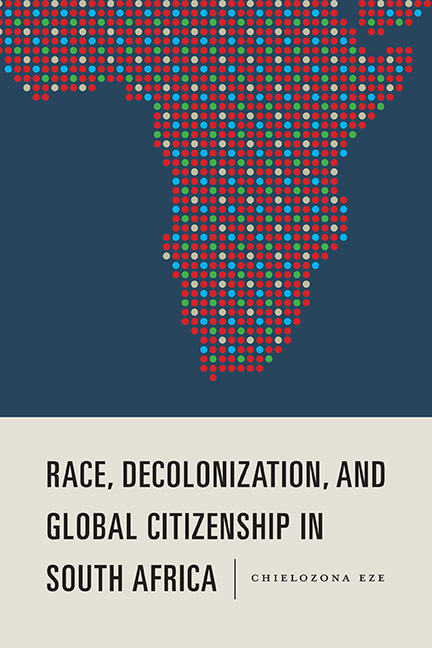Book contents
- Frontmatter
- Dedication
- Contents
- Preface
- Acknowledgments
- Introduction: New World Order, New Moral Challenges
- 1 Theorizing the Present: Sources of the New Moral Self in South Africa
- 2 Nelson Mandela and Desmond Tutu as Global Citizens
- 3 The Violence of History and the Angel of Forgiveness
- 4 The Challenges of Cosmopolitan Thinking in a Postapartheid Society
- 5 Of Xenophobia and Other Bigotries: Forging Transcultural Visions
- 6 Narrating Ubuntu: The Weight of History and the Power of Care
- Conclusion: South Africa in Search of a New Humanism
- Notes
- Bibliography
- Index
Conclusion: South Africa in Search of a New Humanism
Published online by Cambridge University Press: 24 July 2019
- Frontmatter
- Dedication
- Contents
- Preface
- Acknowledgments
- Introduction: New World Order, New Moral Challenges
- 1 Theorizing the Present: Sources of the New Moral Self in South Africa
- 2 Nelson Mandela and Desmond Tutu as Global Citizens
- 3 The Violence of History and the Angel of Forgiveness
- 4 The Challenges of Cosmopolitan Thinking in a Postapartheid Society
- 5 Of Xenophobia and Other Bigotries: Forging Transcultural Visions
- 6 Narrating Ubuntu: The Weight of History and the Power of Care
- Conclusion: South Africa in Search of a New Humanism
- Notes
- Bibliography
- Index
Summary
In the preface, I stated that I gained a new perspective on the world after reading Nelson Mandela's Long Walk to Freedom and Desmond Tutu's No Future without Forgiveness. Mandela and Tutu gave me a new theory to explain my world by providing alternatives to much of what I had understood about the African political and moral landscape. The alternative they provided was rooted in ancient southern African communal practice of belongingness, called ubuntu. They thus delivered tools with which society can effectively upend the conventional understanding of postcolonial theory in Africa. I thus no longer see my identity in oppositional paradigms; I see it in relation to others. Their own model of engaging their postcolonial world can also be understood with the help of the decolonial resistance idiom articulated by Latin American thinkers such as Walter Mignolo, Anibal Quijano, Enrique Dussel, and others. Sabelo Ndlovu-Gatsheni has provided a profound reading of Mandela and convincingly placed him in that decolonial tradition.
As Quijano has argued, European modernity, which is traced above all to Descartes, is rooted in instrumental rationality. Rationality serves a purpose that is the separation of the subject from the world and the consequent labeling of the world as objects to be conquered. Distinction between subject and the world becomes that between self and other, and this distinction is further applied to others who do not belong to one's race and space. These others are conceived of as homogeneous, also to be conquered, colonized, or used as objects. Modernity and coloniality are, therefore, intertwined. Quijano states that “it is necessary to extricate oneself from the linkages between rationality/modernity and coloniality, first of all, and definitely from all power which is not constituted by free decisions made by free people… . [We must acknowledge] the heterogeneity of all reality.” I understand Quijano to mean that heterogeneity prevents the concentration of power and meaning in one source, which ultimately leads to abuse. For example, European modernism usurped the power to dictate meaning in the world and consequently degraded others to the level of meaninglessness.
Mignolo states that the major cause of the current global crisis is the “persistence of global coloniality.” To be sure, “coloniality is shorthand for the ‘coloniality of power’ and both are stand-ins for the ‘colonial matrix of power,’ or the CMP.”
- Type
- Chapter
- Information
- Race, Decolonization, and Global Citizenship in South Africa , pp. 162 - 170Publisher: Boydell & BrewerPrint publication year: 2018



